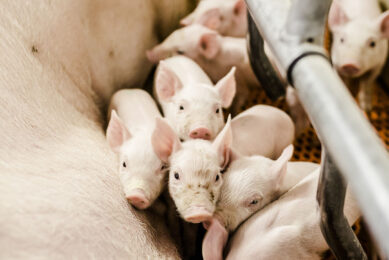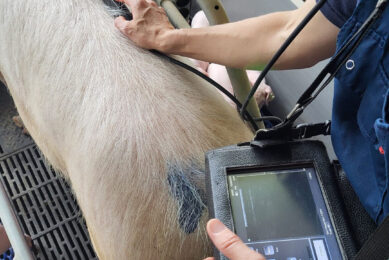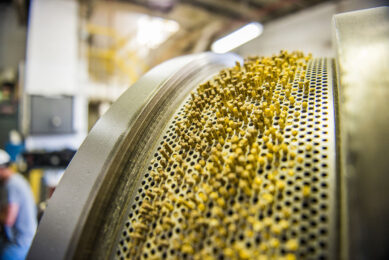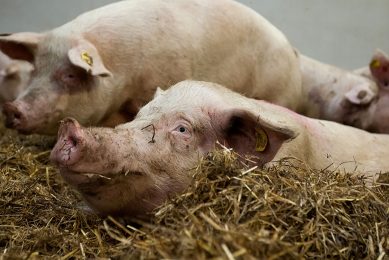Phytogenics: A step further in nutrient utilisation
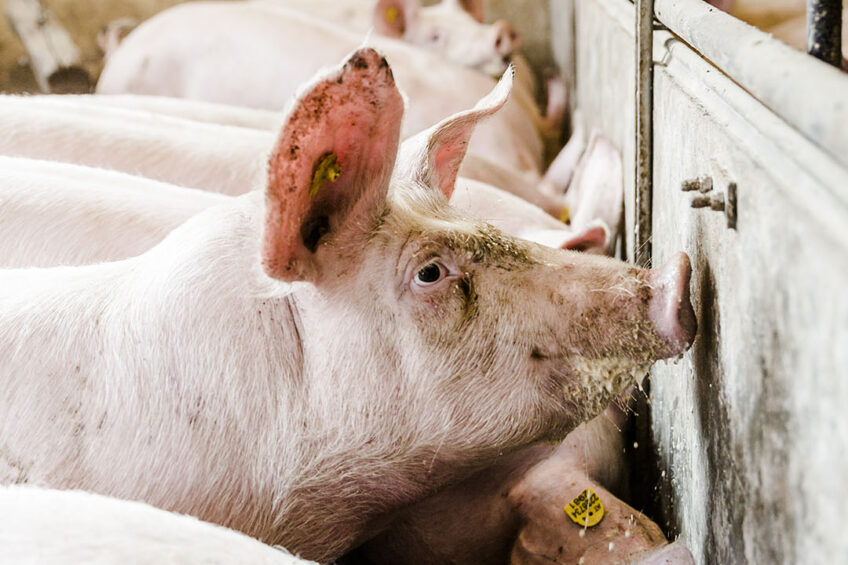
More than ever, the swine industry is facing challenges from all kinds of directions – whether it is cost of production, welfare or environmental concerns. Dietary solutions, including phytogenics, can help meet these challenges.
The challenging international economic situation, as well as socio-environmental pressures from the media and retail chains, makes swine producers search constantly for affordable and effective technologies to optimise resource use and reduce the environmental footprint of their production. Pig farming is also considered by environmental protection authorities to have polluting potential, given the high number of effluent contaminants whose individual or combined action can degrade air, water bodies and the soil. Therefore, ensuring that animals efficiently use the nutrients in feed is not just a search for better zootechnical performance; it is mainly a matter of continuity (or survival) of the swine operations in this activity.
Even with all the genetic advances in pigs that have allowed irrefutable gains in their physiological capacity to digest feed content, as well as in feed production technologies (e.g. grinding and pelleting) that make components more readily accessible to the animals’ digestive processes, there is still a gap to be overcome to achieve full effective nutrient utilisation status. A wide range of feed additives has been positioned as a tool to reduce this gap; however, few have shown themselves to be as promising and effective as phytogenics.
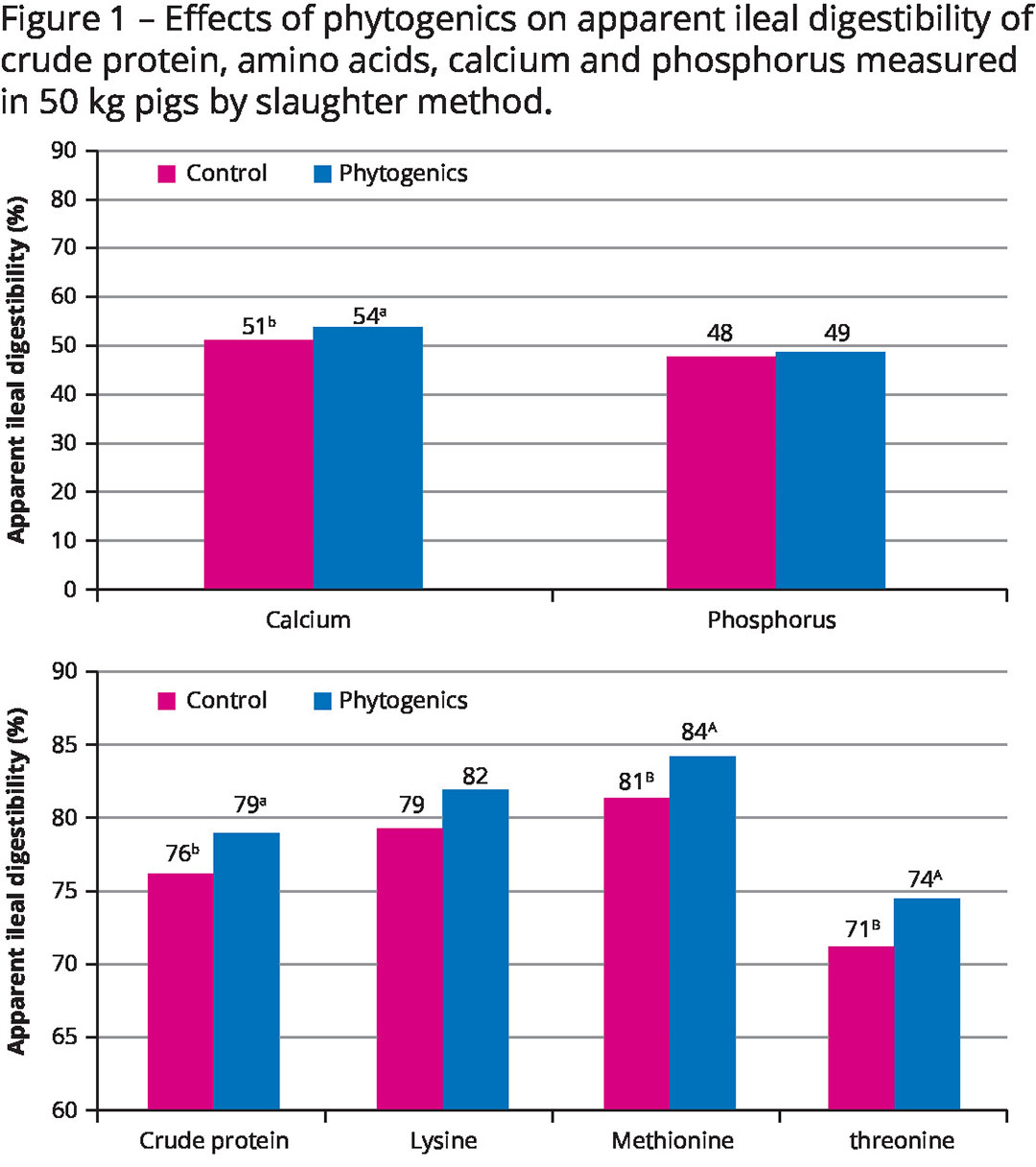
Combination of different substances
Phytogenics are feed additive combinations of different substances of botanical origin, carefully formulated to enhance the digestive processes of pigs and ensure optimisation of feed efficiency, which is the natural ability of the animal to transform feed ingredients into nutrients and then utilise those for overall body maintenance metabolism and body mass growth/gain.
Among several modes of action attributed to phytogenics developed for this purpose, the following stand out: regulation of the ingesta passage rate through the gastrointestinal tract, increased production of endogenous digestive enzymes and bile juices, activation of membrane nutrient transporters, and recognised support for maintaining the integrity of the intestinal absorptive epithelium through improved antioxidant and anti-inflammatory status.
With all those physiologic modulations, the primary gain observed is better retention of nutrients essential for gaining body mass, particularly in the growing and finishing production phase. Several studies have demonstrated a significant improvement in the apparent ileal digestibility of protein, essential amino acids and other nutrients (Figure 1).
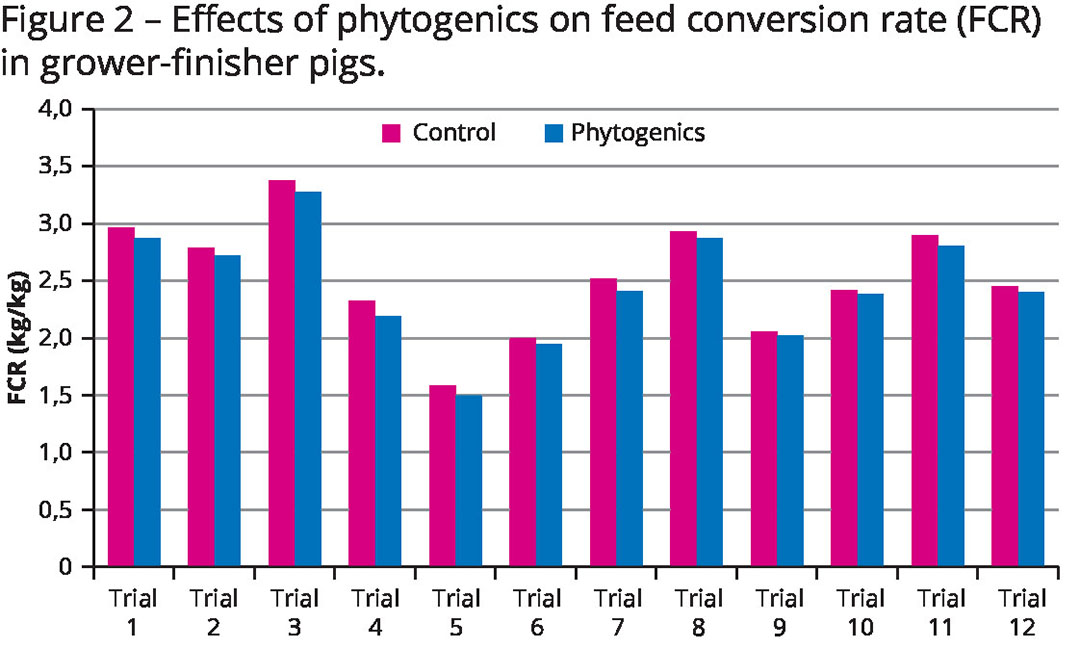
Adequate nutrient utilisation plays a key role in boosting growth performance, with a direct and significant impact on improving feed conversion, weight gain, lean meat deposition and carcass yield (see Figure 2). That performance enhancement considerably improves profitability, providing crucial support for farmers to overcome economically challenging conditions.
Redesigning nutritional strategies
Furthermore, this proven improvement in performance with phytogenics can be used to redesign nutritional strategies in certain economic scenarios. For example, when raw material prices are excessively high and proportionally unbalanced by reduced pork meat prices, nutritionists can forgo the additional gain and reduce the nutritional density of their formulations while maintaining growth performance compared to more conventional diets without phytogenics.
Nonetheless, there is still the issue of environmental sustainability that needs to be considered. When talking about improving apparent digestibility, the pig industry must consider the transformation of a certain fraction of nutrients that would not be naturally retained in the animal organism (also known as the “indigestible fraction”), which can be reduced with the help of phytogenics.
For example, the average digestibility of protein present in swine feeds is naturally 76%. It is possible to improve this by up to 3 percentage points with the use of phytogenics (thus reaching 79%), which means that the reduction of the indigestible fraction of nitrogenous compounds is affected much more significantly, going from 24% to 21%. This reduction represents a lower nitrogen excretion in the waste load in the order of 12.5%.
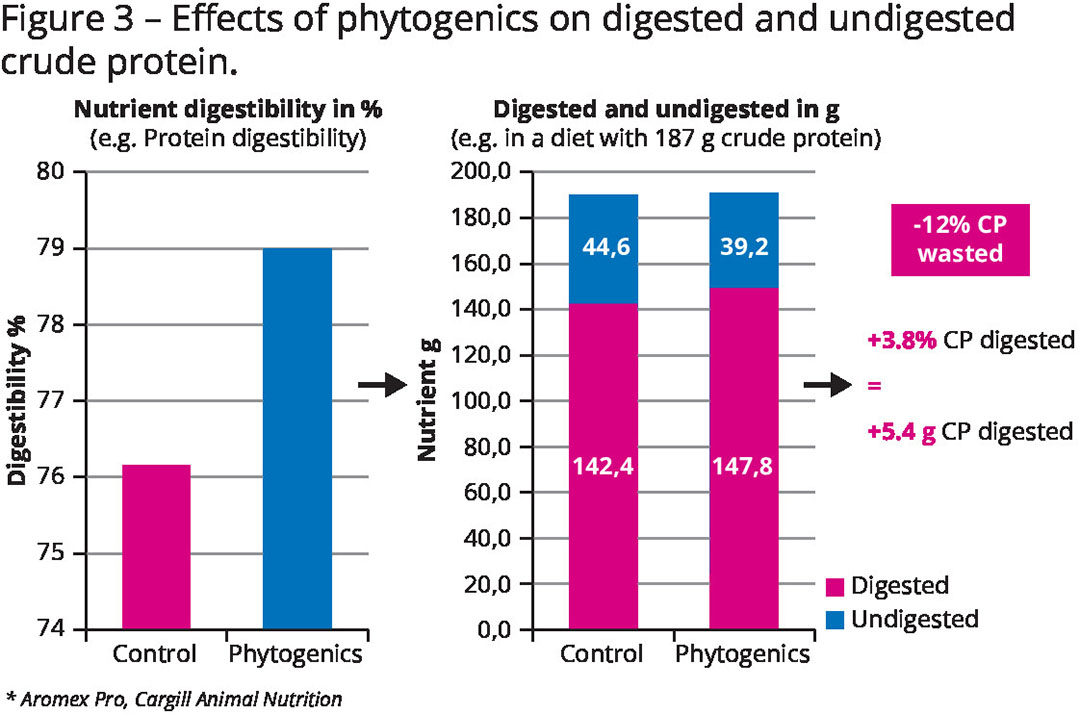
Reduction in indigestible protein
That reduction is beneficial to animal performance parameters and particularly to the environment where pig production is occurring. Nitrogenous compounds present in animal manure are precursors to ammonia production, which can create unpleasant odours from farms, compromise the respiratory health of workers and animals, corrode equipment and degrade buildings. In addition to nitrogen, other compounds present in swine feeds with high environmental impact can have improved retention with the support of phytogenics, notably phosphorus and organic matter.
In conclusion, phytogenics provide a broad and effective gain in competitiveness for swine producers, given their ability to positively affect feed efficiency and zootechnical performance parameters. This natural-based solution also supports essential nutrient utilisation improvements that lead to achieving the economic, social and environmental sustainability requirements of pig farming.



